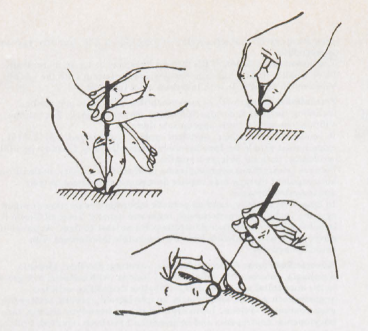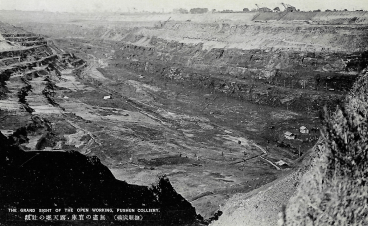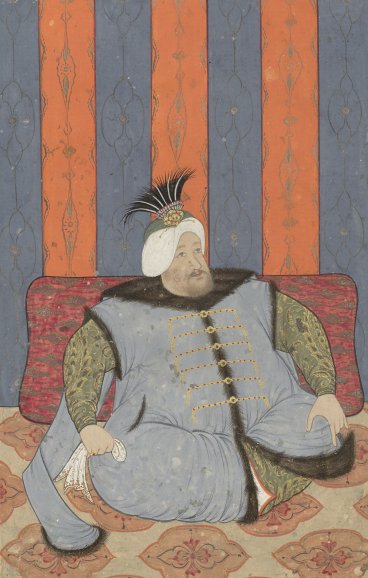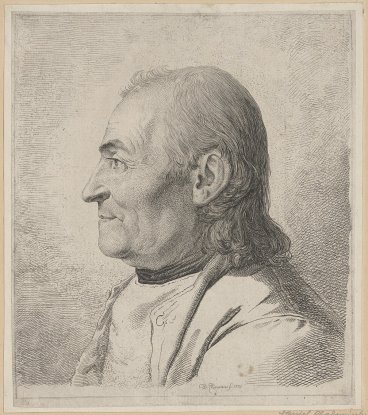Fall 2023 Colloquium
Lectures begin at 3:35pm in 125 Nicholson Hall on the East Bank of the University of Minnesota-Twin Cities campus.
At this time, all events will be in-person unless otherwise stated. Some events may be subject to change. Please check back for updates or contact hstm@umn.edu for more information.
To learn more about MCPS-sponsored lectures, please visit their website.
Please note: there will not be a seminar speaker on November 24, as the University will be closed for the Thanksgiving holiday.
Earlier Colloquium
Dana Matthiessen, September 15, 3:35pm
MCPS Postdoc

Title: What Makes Scientific Models Informative?
Abstract: Scientific models allow users to draw informative inferences about natural phenomena. In recent decades,philosophers of science have sought to explain this capacity of models via theories of scientific representation. This talk will discuss some shortfalls of traditional theories, which appeal to a specific kind of relation between model and target as the source of models’ informativeness. I’ll present elements of an alternative view alongside illustrative examples from the history of science. This alternative accounts for the informativeness of scientific models along two dimensions: (i) synchronically, in terms of the practical inferences they license in data-gathering contexts; (ii) diachronically, in terms of the mutual refinement of modeling and experimental practices over time.
Emily Baum, September 22, 3:35pm
History School of Humanities University of California, Irvine
A Charles E. Culpeper Lecture in the History of Medicine

Title: Eye on the Needle: Acupuncture and 'Alternative' Medicine in 1970s America
Abstract: In the early 1970s, acupuncture burst into the American consciousness. Millions of Americans, dissatisfied with the current healthcare system and wary of a growing pharmaceutical industry, scrambled to gain access to the procedure themselves. The enthusiasm over acupuncture concerned biomedical physicians, who struggled to learn more about the practice and gain clarity on how (or if) it worked. Over the following decade, numerous studies were undertaken on the foreign modality, most of which showed contradictory or inconclusive results. This talk will explore acupuncture's early years in the United States and the ways that physicians tried to make sense of the procedure. Their inability to form a definitive consensus, this talk argues, would eventually lead to acupuncture's "alternative" status within American medicine.
Victor Seow, September 29, 3:35pm
History, Harvard University

Title: Technologies of Extraction in a World that Carbon Made
Abstract: We live in a world that carbon made. The intensified exploitation of fossil fuel energy in the form of coal that began in the eighteenth century set off seismic social and material shifts across the globe. Harnessed through the steam engine, the power contained in coal helped drive mass industrial manufacturing, long-distance travel and transport, and transformations in landscapes molded by machines. In this talk, I draw upon my recent book, Carbon Technocracy: Energy Regimes in Modern East Asia (University of Chicago Press, 2022), to examine how states came to embrace dreams of fossil-fueled development and mobilized various extractive technologies in costly and contentious attempts to render those into reality.
Jonathan Birch, October 2, 2pm, Hybrid 737 Heller Hall and via Zoom
London School of Economics and Political Science

Title: Emotionless animals?
Abstract:Two pictures of the neural basis of emotional experience currently compete: a "basic emotions" picture
(Ekman, Panksepp) on which at least a core set of basic emotions are neurobiological natural kinds, and a
"constructionist" picture (Feldman Barrett) on which emotions involve the skilful interpretation of signals from the
body in ways that are highly susceptible to cultural influence. The existing evidence does not decide between these
pictures. But what are the implications for other animals if constructionism is correct? I argue that, while one
version of constructionism implies no other animals have emotions, this version is implausible. More plausible
versions of constructionism allow that many other animals can have emotional experiences, but that human emotion
categories (such as fear, anger and joy) may be poor guides to what those experiences are like.
Matthew Lavine, October 6, 3:35pm
History, Mississippi State University
Title: Lack of Focus Section: Acknowledging One Hundred Years of Uncomfortable Growth in
the History of Science
Abstract: The History of Science Society celebrates its centennial year in 2024. A celebration is planned for the annual meeting in Mérida, Mexico. Isis will publish a rare special issue. The occasion is so august that it has even forced the organization into the podcast era. It will be, if all goes according to plan, a time for introspection, nostalgia, and a collective retelling and subtle reworking of our origin myths and just-so stories of the doings of our most prominent members in service to who we are and who we need to be. We will speak, critically but lovingly, of the gradual, sometimes glacial broadening of the Society’s membership and scope and ambitions. Most professional societies in the humanities and social sciences have had broadly comparable arcs over the same period.
This task would be greatly simplified were it not for the existence of 99 poorly-organized boxes of archival materials at the Smithsonian Institution which, in their chaotic way, tell a less polished and more interesting kind of story. For all the changes the field has undergone, HSS has rarely led from the front, and rarely been constituted in such a way that it could. Instead, its gaze has been drawn this way and that, its energies cohering in one place only to be scattered again in the next moment as the world changed around it. This talk will be a tour through memos and reports and survey responses going back to the 1940s, when George Sarton relinquished control, and which depict a field seemingly almost constantly in its infancy, never fully settling on answers about even the most basic questions about its identity: who are we? what are our obligations to one another? what is the history of science, anyway?
Peter J. Lewis, October 13, 3:35pm
Philosophy, Dartmouth

Title: Epistemic progress in science
Abstract: It is part of the common-sense view of science that it makes progress, where that progress includes an
epistemic component, perhaps to be cashed out in terms of increased knowledge or understanding. In this talk I will
consider whether science does, in fact, make epistemic progress, and if so, how that progress should be
characterized. In particular, I will argue that a recently influential approach to epistemic progress in terms of the
accuracy of our beliefs fails to correctly characterize canonical cases of epistemic progress taken from the history of
science.
Emily Stanback, October 20, 3:35pm

English, University of Southern Mississippi
A Charles E. Culpeper Lecture in the History of Medicine
Title: Rereading Disability with Race in the Long Eighteenth Century
Abstract: This talk examines the complex relationships between disability and race as they developed over the course of the long eighteenth century into their modern forms. Focusing on cultural touchstones including travel narratives, both literary and scientific, I will argue that attending to colonialism, empire, and race can significantly shift our sense of disability history and that we cannot understand eighteenth-century race or disability without examining the two in tandem.
Faisal Husain, October 27, 3:35pm

History, Penn State University
Title: A Dam Smeared in Blood: Ottoman Expertise and Projecting along the Euphrates River
Abstract: In December 1701, an Ottoman engineering expedition, dispatched by Sultan Mustafa II, arrived on the banks of the Euphrates River, over 1,000 miles away from the Ottoman capital Istanbul. For four months afterward, the expedition toiled to build a giant dam that would—the Ottoman court hoped—revert the Euphrates to its old course. The overly ambitious idea proved highly controversial, both within government and in public, culminating in the death of 40,000- 50,000 peasants and the dam’s collapse before its completion. This presentation uses the unpublished manuscript of Esiri Hasan Ağa, an Ottoman military expert who participated in the expedition, to reconstruct the history of Mustafa II’s dam project. Though it rose and crumbled in a small, rural outpost, the Ottoman dam’s story illuminates three broad issues in the historiography of the early modern world: the concept of expertise, the age of projects, and the knowledge of river channel evolution.
Denise Phillips, November 3, 3:35pm
History, University of Tennessee

Title: The Peasant as Philosopher: Jacob Guyer and the Status of Rural Knowledge-Makers in Eighteenth-Century Central Europe
Abstract: In 1761, the doctor Hans Caspar Hirzel published a biographical sketch of Jacob Guyer, a farmer living in a small village just outside of Zurich. Hirzel’s book became a bestseller, and catapulted Guyer from rural obscurity to European-wide fame. Agricultural improvers showed intense interest in Guyer’s farm, and celebrated poets and even princes came to visit him, to meet the famous peasant in the flesh.
What did it mean in the mid-eighteenth century for a peasant to be praised as a noteworthy authority, and even, in Guyer’s case, to be awarded the Enlightenment’s most vaunted honorific – the title of philosopher? My paper will use the case of Guyer (better known in the eighteenth century by his nickname Kleinjogg) to explore the complex relationships between social and epistemic authority in mid-eighteenth-century German-speaking Europe. The circumstances around Guyer’s fame represented an unusually intense example of elite interest in an ordinary rural person’s knowledge, but from a certain perspective he was less atypical than one might assume. In didactic and polemical writing from this period, elite authors often cast peasants as the enemies of reform, suspicious of novelty and wedded to old, outdated practices. In more technical writings, however, the same elite authors frequently quoted rural people as authorities.
Eran Tal, Philosophy, November 10, 3:35pm
McGill University

Title: Who Needs Magnitudes?
Abstract: The concept of magnitude was central to theories of measurement until the mid-twentieth century, when it
began to fade from discussions on the foundations of measurement. For example, the concept of magnitude plays
virtually no role in the Representational Theory of Measurement. I argue that the neglect of magnitude has resulted
in confusion regarding central measurement concepts such as unit and scale. I develop a concept of magnitude that
resolves these confusions, and explore its implications for the nature of measurement and the conditions of
quantification of empirical attributes.
William Deringer, November 17, 3:35pm
Science, Technology, and Society, MIT
Parking alert for 11/17/23 colloquium

Title: Psychic Income: Irving Fisher’s Pop Psychology and the Economics of Time in the Early Twentieth Century
Abstract: In two weighty economic volumes published in 1906 and 1907, the American economist Irving Fisher sought to place the science of economics on sounder footing by redefining some of the most fundamental categories of economic analysis, including capital, income, value, and interest. At the center of this transformation was a dramatic rethinking of the nature of economic value and its relationship to time. Fisher asserted that the economic value of anything ultimately derived from the subjective satisfaction (or dissatisfaction) it brought to the individuals who used or consumed it, what Fisher called “psychic income.” These psychic benefits were not a static quantity but were always realized over some space of time, whatever the item—a financial asset, an item of food, a house, a piece of furniture, a piano. Psychic income flowed. All economic decisions, Fisher argued, thus entailed translating between this future flow of benefits (or costs) and circumstances in the present moment. “The basic problem of time valuation which Nature sets us is always that of translating the future into the present,” Fisher would write in 1930, “…coming events cast their shadows before.” Fisher described this process mathematically through a technique called “discounting,” which would become one of the rudiments of neoclassical economics in the ensuing century.
Fisher’s contributions to economic theory—and to the popularization of discounting techniques—are a familiar part of economists’ disciplinary histories and have recently attracted increasing attention from historians and sociologists of modern capitalism. Yet the historical sources for Fisher’s rather peculiar ideas remain little understood. How did Fisher come to comprehend the relationship between time, value, and human subjectivity in this way, and how did he come to see a relatively esoteric financial calculation, discounting, as the key to unlocking the mysteries of economic behavior? This paper—drawn from a book-length “biography” of discounting—recovers an essential and overlooked part of Fisher’s thinking: a “pop psychology” that Fisher assembled while recovering from a physically and mentally debilitating bout with tuberculosis. Fisher’s conception of the human mind and the self combined idiosyncratic (mis)readings of prominent psychological authorities, notably William James, with spiritualist and self-help literature, particularly that associated with the highly popular contemporary movement known as “New Thought” or “mind cure.” The story of Fisher’s pop psychology offers new insight into the psychological underpinnings of early American neoclassical economics and a vivid case study of how the success of highly technical concepts (like discounting) may be enabled by seemingly distant cultural trends.
Talia Schaffer, December 1, 3:35pm
English Dept., Queens College, CUNY

Title: Ordinary Bodies: Care, Disability, and Cultural Representation
Abstract: Can the feminist and disability-studies theory of “ethics of care” give us an alternative model for understanding disability? In this talk, I take us back to a mode of thinking about bodies that predates the medical model. Early Victorians regarded suffering as an inevitable part of life, to be ameliorated through social support provided by a community of care. Cultural representations from the nineteenth century preserve this human variability as enmeshed in relationships, giving us a welcome alternative to the modern assumption that bodies with flaws require diagnosis, intervention, and cure. An ethics of care not only characterizes historical texts but also connects them to a rich range of global practices, including queer families of choice and African-American other-mothering, as well as the care-collective vision of disability justice activists are advocating today.
Callie H. Burt, December 8, 3:35pm
Criminal Justice & Criminology; Center for Research on Interpersonal Violence (CRIV), Georgia State University

Title: Translating and Scrutinizing the Science of Sociogenomics: A Focus on Polygenic Scores
Abstract: TSociogenomics is posed to flourish. Social scientists can now incorporate PGSs into their research with
relative ease. In recent years, sociogenomicists have encouraged other social scientists to include PGSs in their
research or risk losing out. Others have argued that social scientists have not just an opportunity but a duty to
incorporate genetics into their research. I scrutinize arguments about the utility of PGSs in social science research. I
first cover the genetics and statistical genetics methods necessary to understand what PGSs measure and why. Then
I discuss limitations, focusing on confounding, causation, and unknown biology, and their implications for the utility
and interpretation of PGSs. Additionally, I highlight the persistence implicit, unavoidable reductionist genetic versus
environment approach undergirding most PGS studies. I conclude that the potential scientific rewards of adding
PGSs to social science are few and overstated and the potential costs are significant.